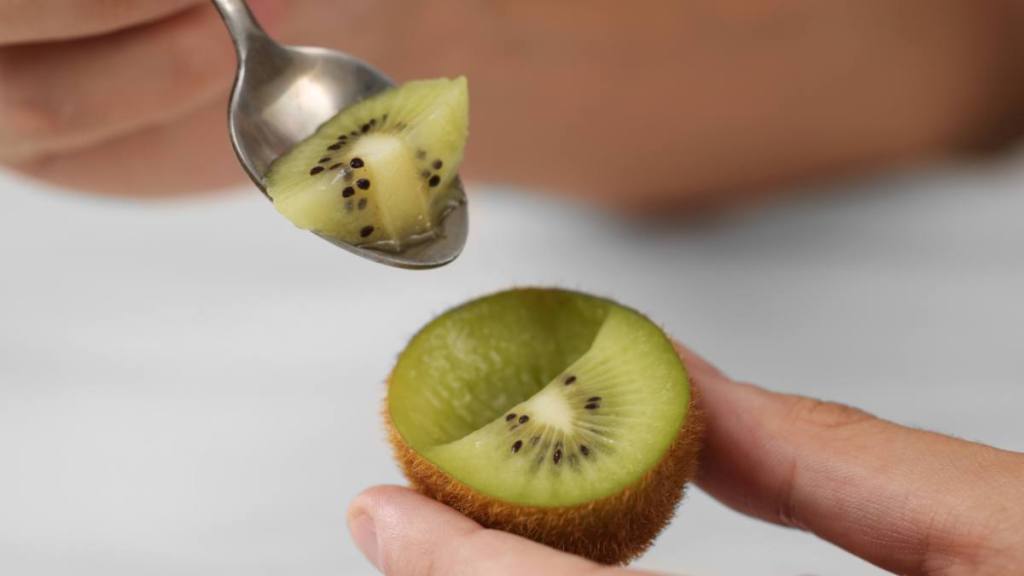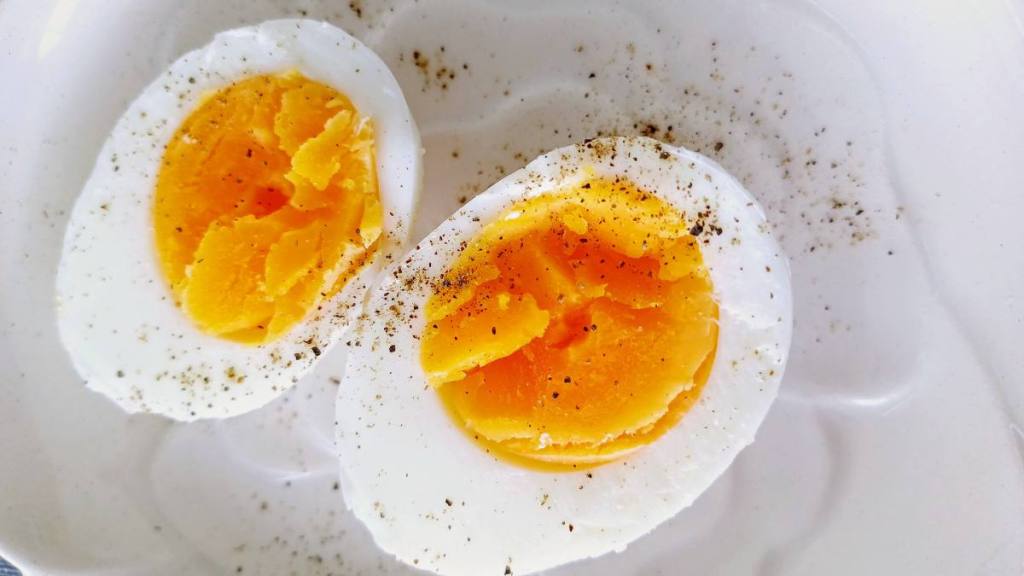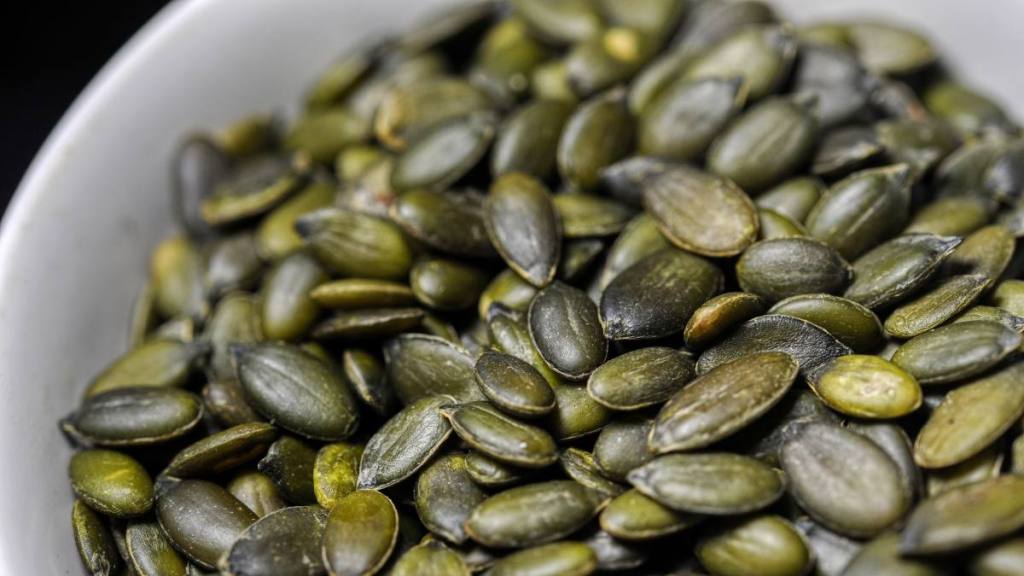Disclaimer: All proprietary content on Physicians Now is exclusively owned by Physicians Now. All RSS feed content is owned by the respective 3rd party website.
The next time stress has you tossing and turning all night or reaching for the nearest doughnut, pause and take a breath. There is food that’s good for insomnia and anxiety, but it might not be the usual comfort dishes that first cross your mind. Reducing anxiety is important because for most people, it leads to insomnia. The intricate relationship between anxiety and insomnia can create a vicious cycle: anxiety makes it difficult to fall asleep, and lack of sleep exacerbates anxiety.
“Despite the strong association between diet, sleep and anxiety, many physicians are only educated in prescribing drugs,” says Jacob Teitelbaum, MD, and author of From Fatigued to Fantastic. He believes that making small dietary changes can significantly impact your sleep quality and anxiety levels.
Certain foods contain natural compounds that promote relaxation, reduce stress and enhance sleep. From melatonin-rich tart cherry juice to magnesium-packed pumpkin seeds, these dietary choices can help break the cycle of anxiety and insomnia, leading to better sleep and improved overall health. We asked Dr. Teitelbaum and other top experts which types of food can help you tame anxiety and insomnia.
Food for insomnia
The following types of food specifically target insomnia, but most of them work by creating a sense of calm, which makes them good for anxiety as well.
1. Tart cherry juice
“A natural source of melatonin, tart cherry juice has been linked to better sleep. In one study, individuals with insomnia who drank cherry juice twice a day saw an 84-minute increase in sleep duration,” says Karman Meyer, registered dietitian and author of Eat to Sleep. Melatonin is a natural sleep hormone that regulates your body’s circadian rhythm. As it gets darker in the evening, the fading light prompts your body to increase melatonin levels. Foods that provide melatonin give that an extra boost.
To get the benefits: In the study Meyer mentions, people drank 8 oz. of cherry juice twice a day — in the morning and at bedtime, but Meyer thinks less will help. “Try one four-ounce glass. Many people experience the benefits with a smaller glass of the juice!” Drinking less liquid before bed cuts the risk that you’ll wake up to go to the bathroom overnight. Drink your four-ounce glass of tart cherry juice one to two hours before bedtime daily.
2. Tofu
Tofu is a good source of tryptophan. A precursor to the feel-good hormone serotonin, which is then converted into melatonin, tryptophan can help you get your Zs. You’ve probably heard that the tryptophan in turkey can make you sleepy, but tofu actually works better, says Simran Malhotra, MD, a board-certified physician in internal medicine. “Although turkey and other meats are also rich in tryptophan, our bodies often struggle to convert it into serotonin. This is because animal proteins contain several amino acids that compete with tryptophan to reach the brain.” That’s why she prefers plant-based sources instead.
To get the benefits: Savor 1 cup of tofu a few times a week, either with dinner or as an evening snack.
3. Chamomile tea
When it comes to food for insomnia and anxiety, chamomile is a smart bet. “This tea has been used for centuries to promote feelings of calm and better sleep,” says Meyer. “It contains compounds that promote calmness and ease anxiety.” Just be cautious about drinking it during the day — it can make you drowsy. Says Dr. Teitelbaum: “The sedative effect is due to a flavonoid, apigenin, found in chamomile, which triggers a relaxation response in the brain.”
To get the benefits: Drink an eight-ounce mug one to two hours before bedtime as often as needed.
4. Kiwifruit

This fuzzy green fruit is a good, natural source of the sleep-enhancing hormone, melatonin. “It’s a great way to support sleep while getting nutrients, including vitamin C, vitamin E and folate,” says Lauren Fleck, a registered dietitian with the U.S. Department of Veterans Affairs. That folate is just as key as melatonin because folate deficiencies contribute to insomnia.
To get the benefits: Snack on two kiwifruits an hour before bedtime as often as needed.
5. Quinoa
This grain is a well-known superfood packed with plant-based protein and fiber. It’s also rich in magnesium, a mineral that regulates neurotransmitters in the central nervous system that help you fall asleep. “It’s essential to incorporate magnesium into your diet consistently throughout the day to fulfill your body’s requirements,” says Michelle Routhenstein, a registered dietitian at Entirely Nourished.
To get the benefits: Serve up one cup cooked quinoa with dinner (three to four hours before bed) once or twice a week.
6. Fruits and vegetables
Dr. Teitelbaum notes that blood sugar highs and lows can interfere with people’s sleep. High-fiber fruits and vegetables help you sleep by keeping blood sugar stable, he says. Blood sugar crashes wake you up in the middle of the night.
To get the benefits: Get 25 grams of fiber each day. For best blood sugar regulation, you should add a fiber-rich fruit or vegetable, like kale or an apple, to every meal and snack.
Related: Ever Wonder What Jackfruit Tastes Like? Here’s Everything You Need to Know About the Trendy Fruit
7. Pistachios
These crunchy nuts are another source of sleep-inducing melatonin. “Snacking on pistachios in the later afternoon or before bedtime, can naturally increase melatonin levels, promoting better sleep patterns,” says Routhenstein.
To get the benefits: Enjoy an ounce of pistachios two hours before bedtime as needed.
8. Hard-boiled eggs

Like fiber, a small protein snack such as a hard-boiled egg can help maintain blood sugars during the night, says Dr. Teitelbaum. Steady blood sugar eliminates the highs and lows that can wake you up at night. “This is especially beneficial if it replaces carbohydrate snacks, which lower blood sugar during sleep and stimulate adrenaline.”
To get the benefits: Snack on one hard-boiled egg two hours before bedtime as needed.
Food for anxiety
These foods have been shown to reduce stress and anxiety throughout the day. Many of these food fixes can be especially helpful at bedtime because of the connection between anxiety and insomnia.
1. Green tea
It does contain some caffeine, so it’s not recommended after midday. But in the morning, green tea is an anxiety-busting alternative to coffee. “For those who need a caffeine-containing beverage to start the day, a cup of green tea has theanine, which stimulates a calm alertness and increases the calming neurotransmitter GABA,” says Dr. Teitelbaum.
To get the benefits: Sip an eight-ounce mug daily before noon.
2. Pumpkin seeds

These tasty seeds are rich in magnesium, one of the most important minerals for calming the nervous system. “It inhibits neurotransmitters that can make your brain feel active and restless. Magnesium also supports the brain chemical GABA, providing a soothing and calming effect,” says Fleck.
To get the benefits: Nibble ¼ cup just before bedtime to promote sleep but eat them anytime throughout the day to relieve stress.
3. Tuna
A pouch of tuna might not be your ideal snack, but it can help ease anxiety “About a dozen studies have shown that increasing fish oil has a marked effect on decreasing anxiety,” says Dr. Teitelbaum. Sardines, herring and omega-3 supplements would all work as well. Dr. Teitelbaum recommends Vectomega tablets because one pill replaces eight large fish oil capsules.
To get the benefits: Eat 3-ounces of fish two to three times a week. As long as you are getting enough omega-3s in your overall diet, it doesn’t matter when you eat them.
4. Chickpeas
This popular legume is a top source of vitamin B6. “It’s a crucial nutrient for the creation of serotonin, a brain chemical that can help calm the mind,” says Fleck. “While there are other ways to incorporate vitamin B6 in your diet, chickpeas tend to be the most simple, convenient and enjoyable way to meet your requirements and can be consumed daily.”
To get the benefits: Eat ½ cup chickpeas or hummus two to three times a week to keep your B6 levels up.
The next time you’re losing sleep or experiencing increased anxiety, consider turning to your refrigerator instead of the medicine cabinet. Adding some of these calming foods could be safer, more affordable and tastier than popping a pill.
For more ways to combat anxiety:
Can Sound Baths for Anxiety Ease Your Stress? What You Need to Know
30 Journal Prompts That Boost Bliss, Slash Stress and Ease Anxiety — In Minutes!
3 MD-Approved Natural Remedies for Anxiety That Really Work — No Side Effects
This content is not a substitute for professional medical advice or diagnosis. Always consult your physician before pursuing any treatment plan.
Do you think you may suffer from Insomnia and live in Florida, California or New York?If so, please consider scheduling a proper virtual online Insomnia and Anxiety diagnosis with one of our physicians. Although we have an online ADHD and Anxiety diagnosis tool, a proper diagnosis from a Board-Certified Medical Doctor will help you know for sure. If appropriate, a customized treatment program will be recommended at the conclusion of that initial visit. |